Multiple parents notice that their kids are using unfamiliar slang during chats or on social media platforms. Terms like ONG usually appear in texts, which leaves parents unsure about their meaning or intent. The communication gap can raise concerns about whether children are using language safely and appropriately. This is where understanding modern chat terms is essential, not just for clarity but also to support open and safe conversations within families.
Thus, this article explains the real ONG meaning and its intended use in chats and messages. It will start by clarifying how this slang term is different from others and what alternative meanings it has. Moreover, parents will explore some tips that they can opt for to give their appropriate response to such terms.
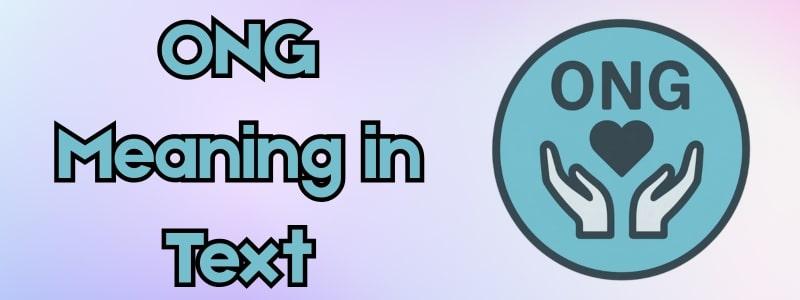
Table of Content
Part 1. Know the Real Meaning of ONG & How it Differs with OMG
This term is an abbreviation for On God, used by newer generations in online conversations. When they write this slang, they are just expressing honesty or emphasizing that they are telling the truth. Therefore, if parents are wondering what does ONG mean, it's essentially a modern way of saying, I swear, or I promise. Unlike OMG, which means Oh My Good and shows surprise, this one is used to assure their sincerity.
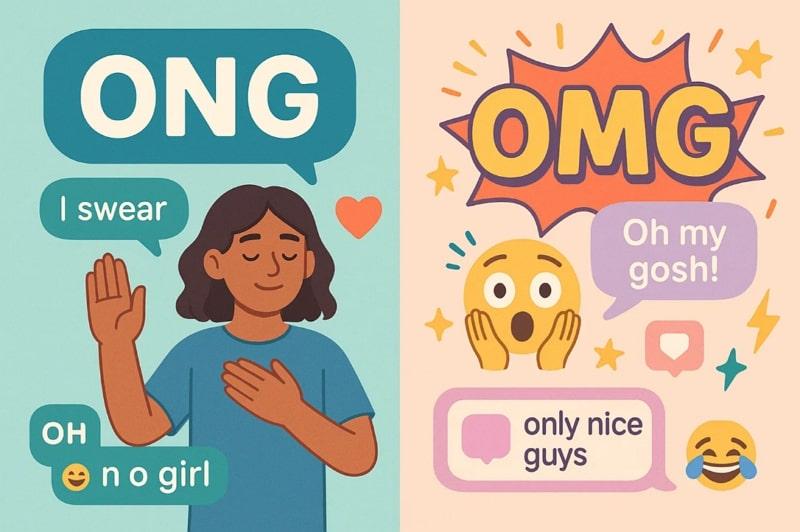
Alternate Meanings of ONG
While On God is the most common interpretation, the ONG meaning slang can sometimes shift based on context. In Snapchat stories, some kids may jokingly use it to mean things like Oh No Girl. However, it can also mean Only Nice Guys, as a sarcastic phrase usually used in dating or social media humor.
Conversely, the latter can also have variations, as teens can say Oh My Gosh or Oh My Goodness in school or around adults. While OMG shows surprise or emotion, it lacks the truth-claiming tone that ONG's meaning carries. Therefore, understanding these differences can help parents better grasp how kids communicate online.
Comparison of ONG and OMG Meanings & Usage
After understanding the difference between these two popular expressions, let's look at their usage in conversations. This will help clarify what does ONG means in the text compared to OMG, especially for parents trying to decode teen slang:
| Term | Full Form | Common Use | Emotion or Intent | When It is Used |
| ONG | On God | To stress honesty or truthfulness | Serious, Sincere | When confirming something is true |
| OMG | Oh My God | To show shock or excitement | Causal, Expressive | When reacting to something surprising |
Part 2. What Does ONG Mean in Text & Social Media?
As you understand how ONG compares to OMG, it is important to see how it’s actually used by kids today. Exploring common text messages and social media posts helps reveal the real meaning of ONG in everyday conversations:
1. In Text Messages
At times, the ONG meaning in text is used to express that something is not in someone’s hands. However, phrases like That's on God, suggest that the outcome is up to God, not the speaker. Some can say, “I did everything I could to help, what happens next is On God.”
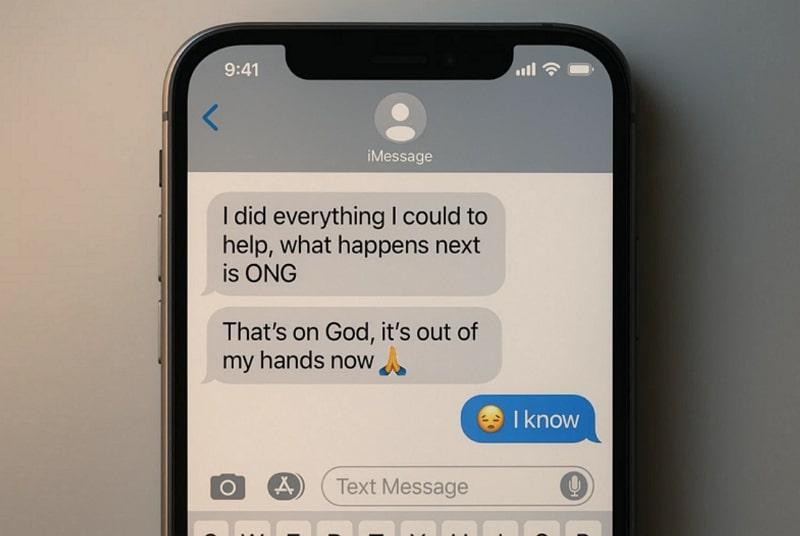
2. On Snapchat
Kids usually use slang casually in their chat replies on social media platforms like Snapchat. If you're wondering what does ONG mean on Snapchat, it’s used to show support or excitement. For example, “ONG, that's hilarious” can be a reply if someone sends a funny meme.
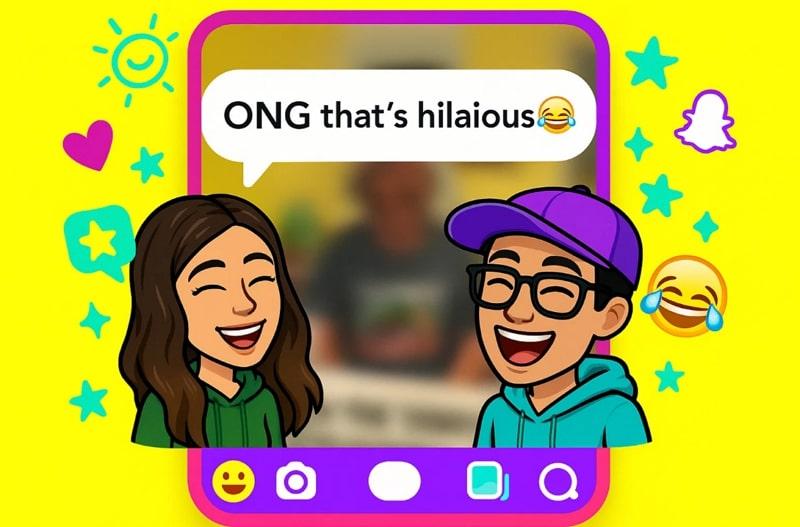
3. On TikTok
The meaning of ONG on TikTok is widely used to express agreement or disbelief. This slang became popular back in 2019 and now frequently appears in comments and reactions. Such as, “ONG I would have screamed too!” can be a comment of someone on a shocking prank video to show the viewer relates to the moment.
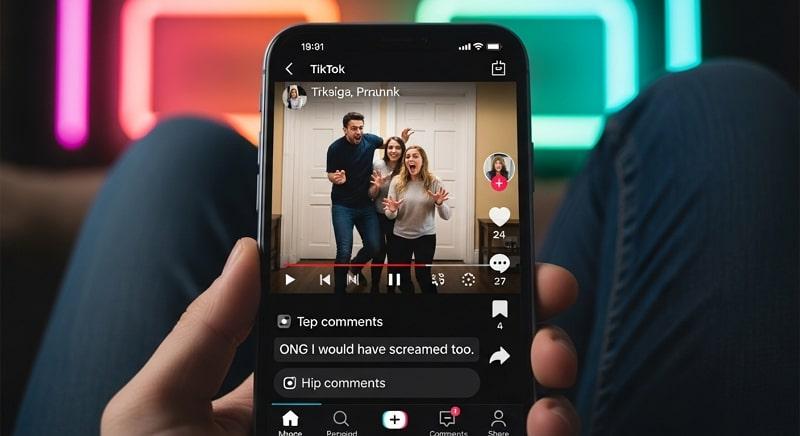
4. On Discord
Through this platform, users chat in real-time, and the slang ONG's meaning is to add emotion to the messages. Here, this is similar to Snapchat, used in general chats or casual conversations to show strong reactions to something. A user can comment, "That match was wild," and a friend might reply, "ONG, I know right," to show they agree and feel the same.
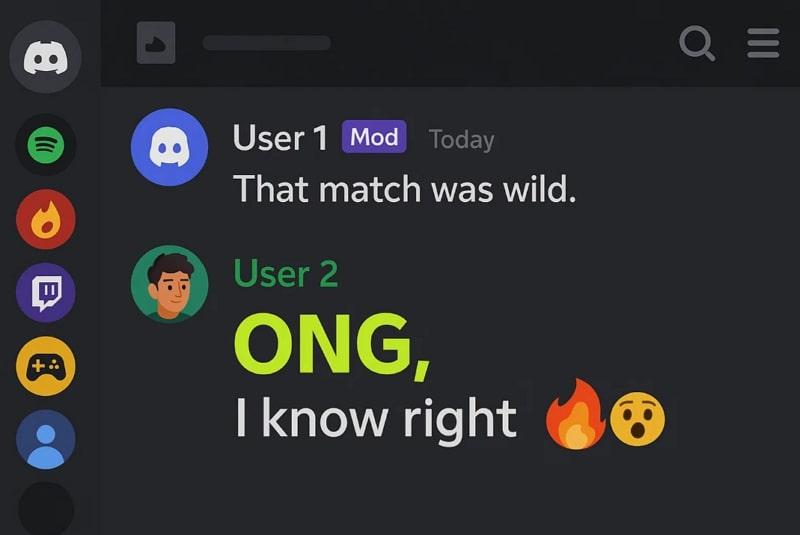
5. On Instagram
The ONG meaning slang, appears in comment sections to add emphasis or react strongly to a post. On Instagram, it is used when someone is impressed or emotionally moved by something they see. A user can comment on a travel photo, “ONG, that sunset is unreal!” Thus, it will highlight how much the post connects with them.

Part 3. How to Respond to ONG Naturally? Tips for Parents & Elders
Many parents wonder how to respond to ONG, especially when they try to connect with their kids online. Therefore, read below to find out some useful tips for parents to respond to this slang:
Stay Calm: Slangs like ONG can feel strange, but staying calm can help avoid making things uncomfortable. Kids usually use these words casually without meaning anything serious or harmful to them.
Ask with Interest: Parents can ask their kids what ONG means in a polite way instead of reacting with confusion or worry. As a result, showing interest rather than disapproval encourages them to explain openly without fear of judgment.
Use it Casually: While trying to use this slang in a fun way, it is best to show your child you are willing to understand them. Using it in front of them can help bridge the communication gap between generations.
Observe their Tone: You can pay attention to see how your child uses this phrase in different contexts, like chats or videos. Plus, their tone and facial expressions usually reveal if they are joking or just copying others.
Avoid Mocking Their Slang: Elders should try never to make fun of their words like ONG, even if it sounds odd. As we know, kids are sensitive to how adults react, and mocking their language can shut down open communication.
Bonus Tip. Track Your Kids' Online Habits to Better Stay in Touch
Many parents notice their kids using unfamiliar terms like ONG in messages and wonder about the meaning of ONG in chat. This is where FamiSafe comes in as a trusted parental control tool that helps them monitor online activity and stay connected safely. The tool allows parents to remotely capture their kids' phone screens and take screenshots of them at regular intervals to see the context in which they are using slang words.
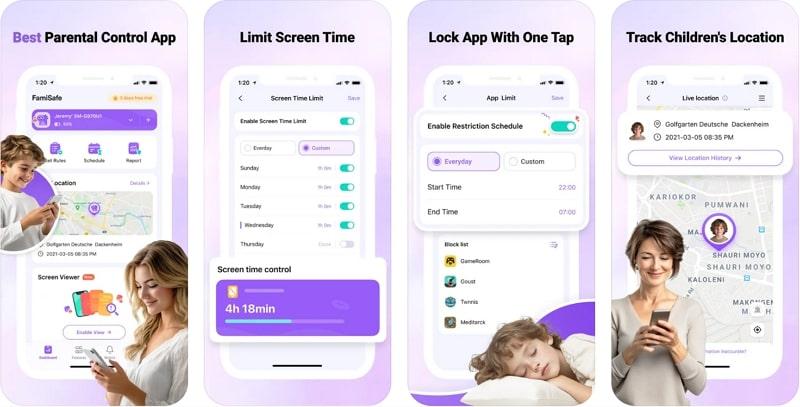
Additionally, parents can track their children's text messages to identify harmful language and code words, thereby protecting them from online risks. If you see excessive use of any application, you can even block that app or set a usage limit on it to avoid unwanted access to adult language content. You can also view your kid’s TikTok history to check if they’re posting or viewing content with slang like ONG.
Conclusion
In short, understanding the ONG meaning helps parents follow what kids say online and respond in a calm and informed way. This small slang term carries the truth and connection that kids express through their messages.
Plus, recognizing such terms builds stronger family communication between parents and kids. Besides, parents can opt for the FamiSafe app to stay aware of their child's online activity and support them in safe online spaces.
FAQs of ONG Meaning
-
Q1. Is ONG only used by GenZ?
ONG is mostly popular among Gen Z users across social media platforms like TikTok and Instagram. However, it is not strictly limited to them, as some millennials and younger users also use it occasionally. Still, Gen Z uses it the most, making it a common part of their online chats and comments. -
Q2. Where does the ONG term come from?
This slang term is short for On God, meaning honest or swearing to something true. It originated from the hip-hop culture, which began to appear on the internet in 2020 and 2021 through viral content that trended on TikTok and YouTube. Since then, it has become a popular way for users to show sincerity and truthfulness in their conversations. -
Q3. How can teachers or educators handle slang like ONG in school settings?
Teachers can acknowledge slang like ONG as part of student culture while maintaining professional classroom language standards. They may explain that formal communication differs from social slang without banning words entirely. This approach helps create respectful boundaries while still allowing students to express themselves appropriately and feel understood.


